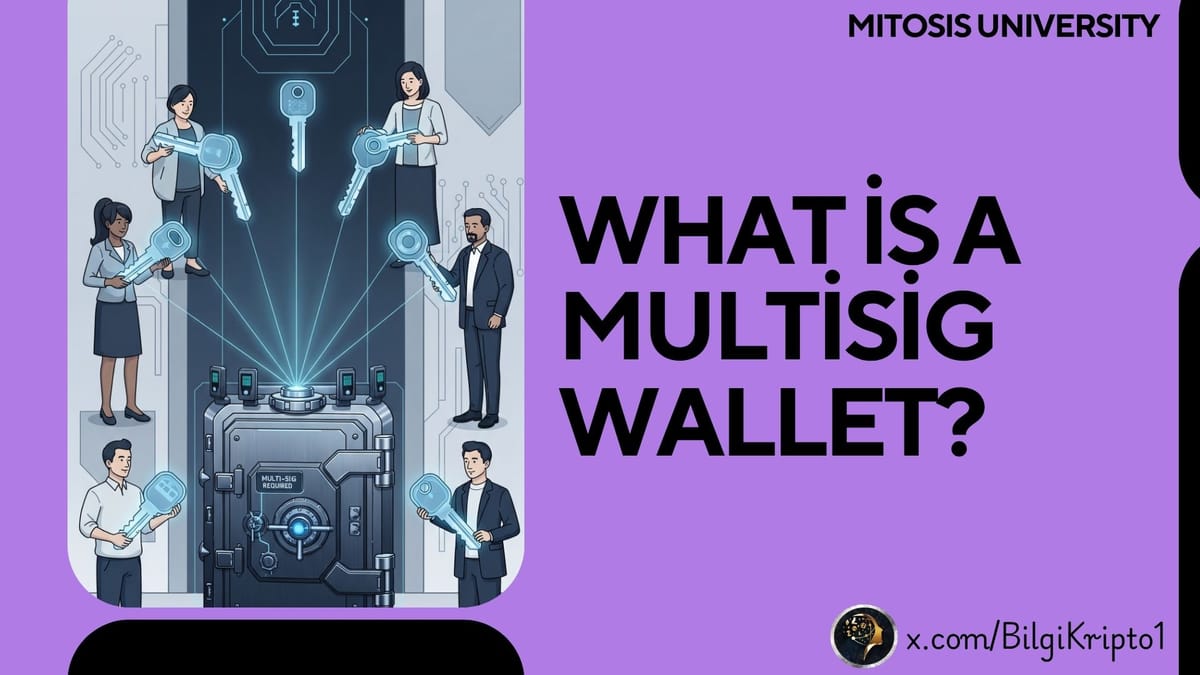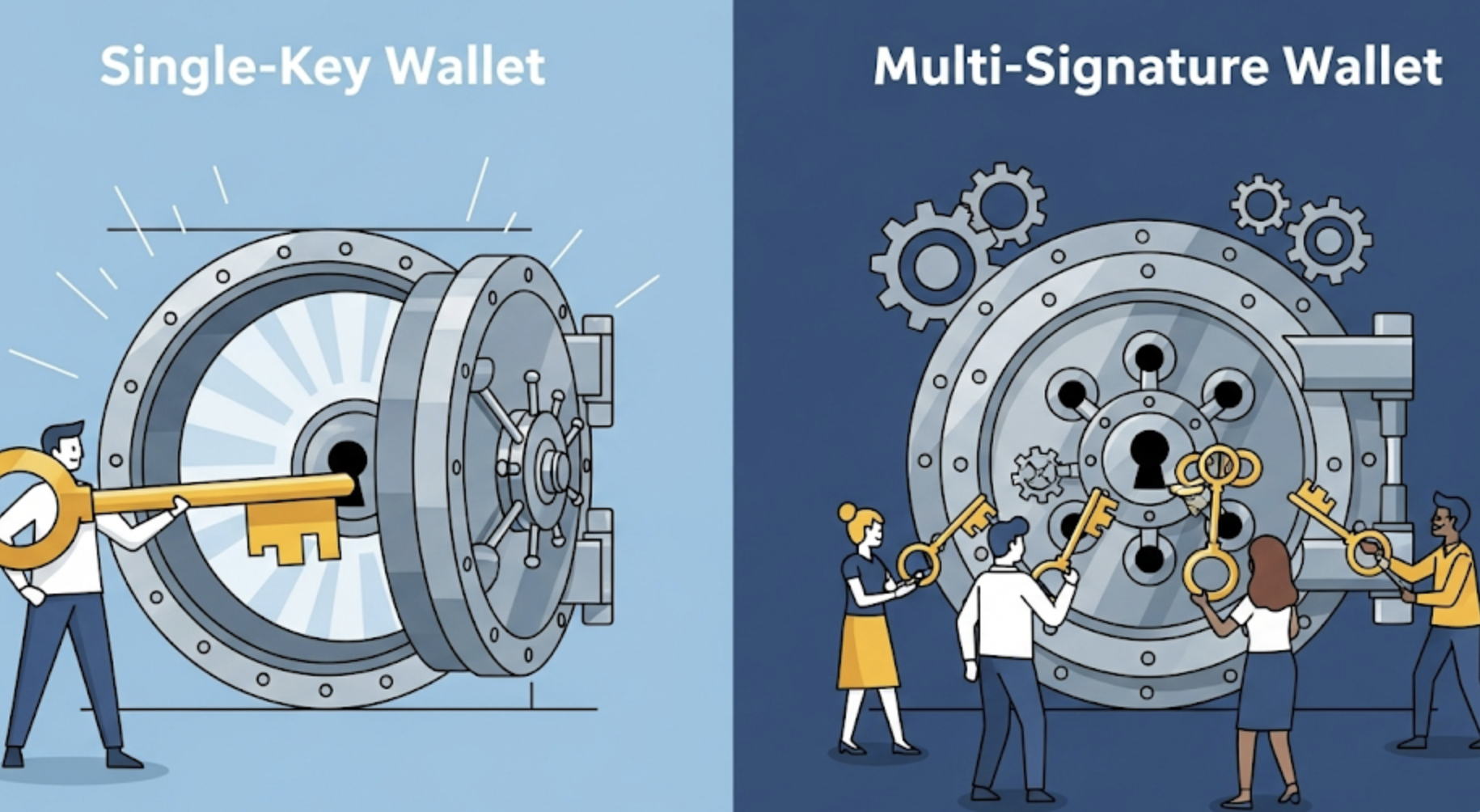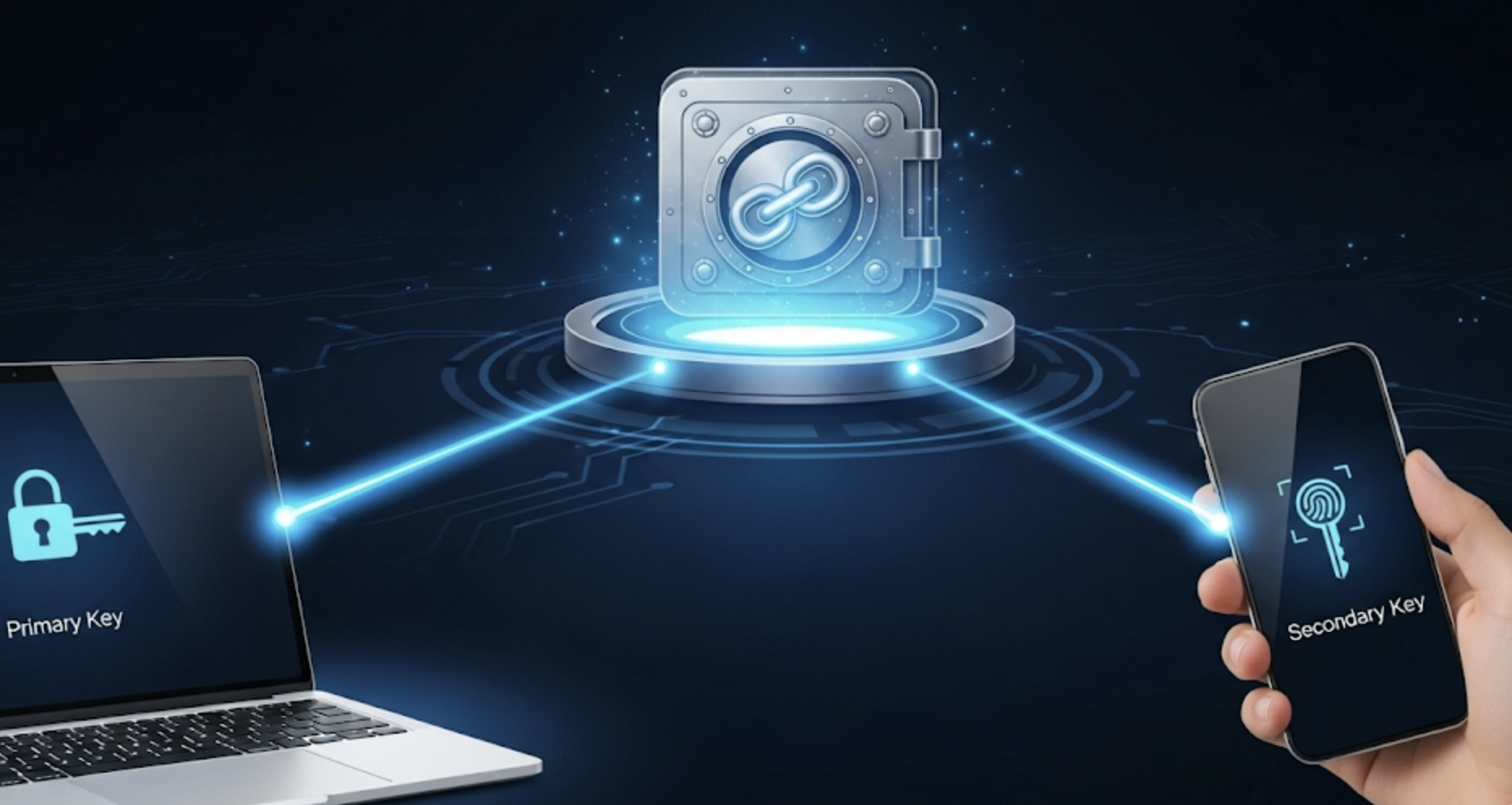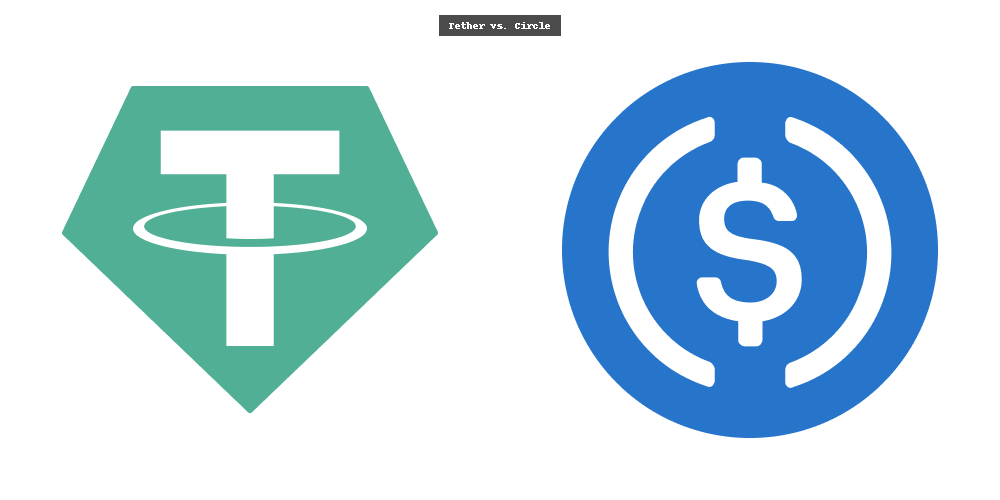What is a Multisig Wallet?

Multisig, or multi-signature, is a specific type of digital signature that allows two or more users to collectively sign documents or transactions. Essentially, it is created by combining multiple unique signatures. This multi-signature technology exists in the world of cryptocurrencies but the basic principle predates the creation of Bitcoin.
In the context of cryptocurrencies, this technology was first applied to Bitcoin addresses in 2012, leading to the creation of multi-signature wallets a year later. Multi-signature addresses can be used in various contexts, but most use cases are related to security concerns. Here, we will focus on their usage in cryptocurrency wallets.
How Does It Work?
To understand simply, imagine a secure safe with two locks and two keys. One key is with Alice, and the other is with Bob. The only way to open the safe is by using both keys simultaneously, meaning neither Alice nor Bob can open the safe alone.
Basically, funds stored at a multi-signature address can only be accessed with 2 or more signatures. Therefore, using a multi-signature wallet allows users to add an extra layer of security to their funds. However, before going further, it is important to understand the basics of a standard Bitcoin address, which relies on a single key rather than multiple keys.

Single-Key vs. Multi-Signature Wallets
Bitcoins are usually stored in a standard, single-key address, meaning that whoever holds the corresponding private key can access the funds. This means only one key is required to sign transactions, and anyone with that private key can transfer Bitcoins at any time without anyone else's permission.
While managing a single-key address is faster and simpler than a multi-signature one, it poses several security risks. Having a single key means funds are protected by a single point of failure, and cybercriminals continuously develop new phishing techniques to steal crypto users’ funds.
Moreover, single-key addresses are not the best choice for businesses dealing with cryptocurrencies. Imagine a large company's funds stored in a standard address with a single private key. This means that private key would be entrusted to either one person or multiple people at the same time, which is clearly not the safest approach.
Multi-signature wallets offer a potential solution to these two problems. Unlike single-key wallets, funds stored in a multi-signature address can only be moved if multiple signatures (created using different private keys) are provided.
Depending on how the multi-signature address is configured, it may require a combination of keys: the most common is “2-of-3,” where access to funds requires only 2 signatures out of 3. However, many variations such as 2-of-2, 3-of-3, 4-of-3 also exist.
This technology has many possible applications. Some of the most common use cases for multi-signature cryptocurrency wallets include the following.
Increasing Security
By using a multi-signature wallet, users can prevent issues caused by loss or theft of private keys. This way, even if one key is compromised, the funds remain safe.
Imagine Alice creates a 2-of-3 multi-signature address and then stores each private key in different places or devices (for example, phone, laptop, and tablet). Even if her mobile device is stolen, the thief cannot access the funds by using only 1 of the 3 keys. Similarly, the chances of successful phishing attacks and malware infections are lower because the hacker likely can access only one device and key.
Putting aside malicious attacks, even if Alice loses one of her private keys, she can still access her funds using the other 2 keys.
Two-Factor Authentication
By creating a multi-signature wallet that requires two keys, Alice can establish a two-factor authentication mechanism to access her funds. For example, she might keep one private key on her laptop and the other on her mobile device (or even on a piece of paper). This setup ensures that only someone who has access to both keys can execute transactions.
However, it is important to note that using multi-signature technology as two-factor authentication can be risk especially if set as a 2-of-2 multi-signature address. If one key is lost, you lose access to your funds. Therefore, a 2-of-3 setup or using a third-party 2FA service would be safer. When dealing with crypto exchange accounts, it is strongly recommended to use Google Authenticator.

Escrow Transactions
Creating a 2-of-3 multi-signature wallet allows an escrow transaction between two parties (Alice and Bob) with a mutually trusted third party (Charlie) acting as the arbitrator in case of any dispute.
In such a scenario, Alice deposits the money, and the funds are locked (neither party can access them alone). Then, if Bob delivers the agreed goods or services, both parties sign the transaction using their keys to complete it.
The arbitrator Charlie only intervenes if there is a disagreement and can create a signature using their key to release the funds either to Alice or Bob.
Decision Making
A board of directors may use a multi-signature wallet to control access to company funds. For example, by creating a 6-of-4 wallet where each board member holds one key, no single member can misuse the funds. Only decisions approved by the majority can be executed.
Disadvantages
Although multi-signature wallets provide good solutions to various problems, it is important to remember they come with some risks and limitations. Creating a multi-signature address requires some technical knowledge, especially if you do not want to rely on third-party providers.
Additionally, since both blockchain and multi-signature addresses are relatively new, it may be difficult to pursue legal action in case of a problem. Shared wallets with multiple key holders do not have legal custodianship over the deposited funds.
Final Thoughts
Despite some disadvantages, multi-signature wallets have many interesting applications that make Bitcoin and other cryptocurrencies more practical and attractive especially for businesses. Multi-signature wallets provide enhanced security by requiring multiple signatures for fund transfers and enable secure escrow transactions. Therefore, it is likely that the use of this technology will continue to grow in the future



Comments ()